World Geography And Politics Daily News | 13 Jul 2023

Views (122)
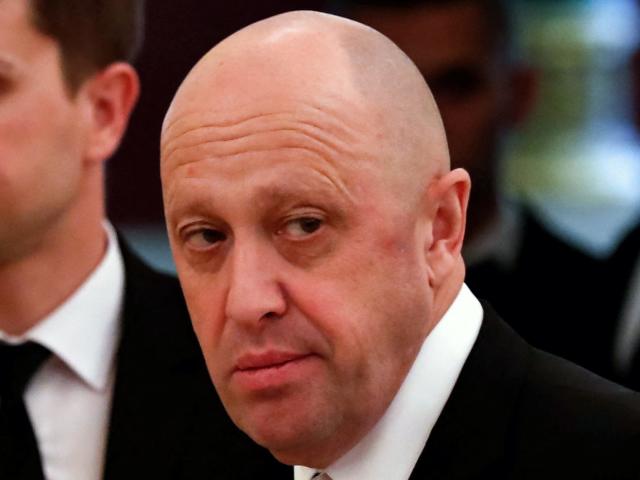
Top Putin Confidante Secretly Moved to Island Paradise: Report
Mike Blake/ReutersA confidante of Russian President Vladimir Putin sanctioned by Ukraine for supporting the war is living in a “luxurious complex” in Tenerife, according to a report.Yelena Isinbayeva, a two-time Olympic gold medalist pole vaulter, has apparently been leading a secret life in the Spanish territory in the Canary Islands, according to El Digital Sur. The outlet cited a source saying that Isinbayeva—who is also a major in the Russian army—was granted permission by her superiors to t
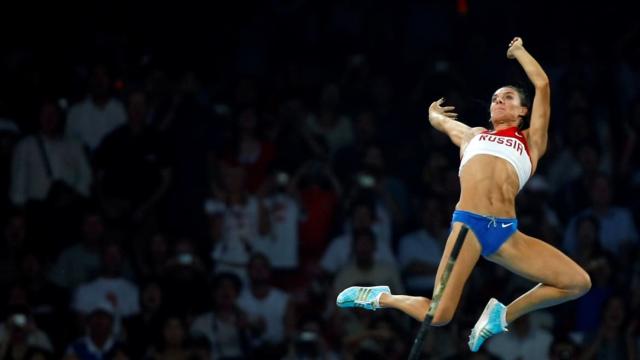
Last year, Isinbayeva was one of the Russian athletes hit by Ukrainian sanctions as the invasion began. Ukrainian President Volodymyr Zelensky said the measure was targeting Russians “who are trying to put sport at the service of aggression.”
U.N. says Israeli raid cut water access to thousands, displaced 173
The U.N. humanitarian agency says about 40 families are still displaced after Israel's raid and thousands are back in homes left "uninhabitable" by the assault.
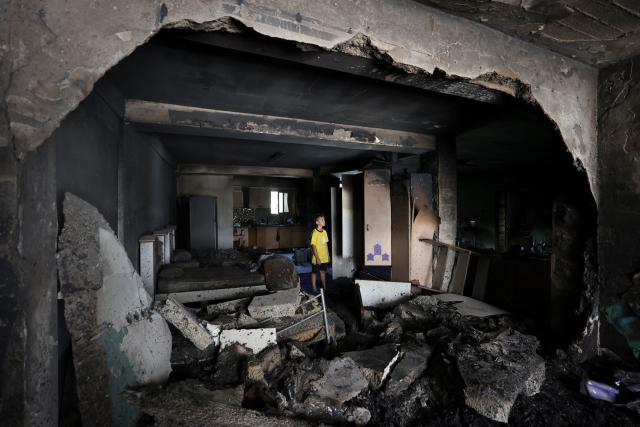
"Jenin Refugee Camp, home to about 23,600 people, including 7,150 children, still lacks access to water, a week after the destruction of the local water network in a two-day operation carried out by Israeli forces," a report from the United Nations Office for the Coordination of Humanitarian Affairs said Tuesday. It estimated that access to water for 40% of the Jenin camp's residents was still cut.
Last week's operation, which left at least 12 Palestinians and one Israeli soldier dead, also drove many Palestinians from their homes in Jenin and left a trail of damage and destruction in its wake, according to the report.
The U.N. agency said at least 173 people, or about 40 families, were still displaced from their homes a week after the military operation.
The report says thousands of others have returned to homes left "uninhabitable" by the Israeli assault, which included strikes by armed drones.
An estimated $5.2 million will be needed to address immediate humanitarian needs in Jenin, according to the OCHA report.
The operation was Israel's biggest in the West Bank in almost two decades. The Israel Defense Forces struck the camp in an operation it said was aimed at destroying and confiscating weapons from terrorists.
Palestinian Authority President Mahmoud Abbas visited Jenin Wednesday to survey the damage. His visit came just days after three of his senior officials were forced to flee a funeral by heckling crowds furious at the PA's response to the Israeli assault, the Reuters news agency reported.
Palestinian authorities have launched a ministerial committee to provide reconstruction assistance in the Jenin camp, and the U.N. has said it is in contact with local officials to coordinate those efforts.
Netanyahu's cabinet includes members of ultra-nationalist political parties that had long been relegated to the sidelines of Israel politics, including his new domestic security minister, who once chanted "death to Arabs" and was convicted of inciting racism.
NATO’s reluctance to invite Ukraine incentivizes Putin to continue the war – Kurt Volker
Former U.S. Special Representative for Ukraine, Ambassador Kurt Volker, has asserted that NATO's indecisiveness regarding Ukraine's accession to the Alliance is encouraging Russian dictator Vladimir Putin to prolong the war against Ukraine.
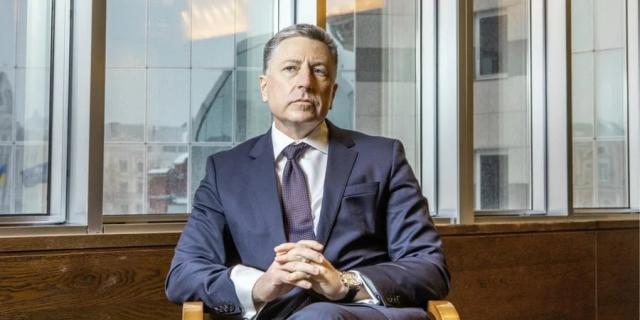
During an online discussion at the Kyiv Security Forum (KSF) on July 12, Volker stated that NATO's failure to provide clear prospects for Ukraine's membership at the summit in Vilnius was effectively a green light to Putin. KSF is a platform established by the Open Ukraine foundation, ran by former Ukrainian PM Arseniy Yatsenyuk.
Volker underscored that nobody should have expected a formal invitation for Ukraine to join NATO at this summit. The key issue was whether NATO could send an unambiguous message to Putin about its intentions for Ukraine's membership.
"Sadly, such a signal was not sent," he noted.
Volker observed that the Vilnius summit essentially mirrored the sentiment expressed at the Bucharest summit in 2008.
"(They said) Ukraine’s future place is in NATO, but the absence of a process, timelines, confidence, and sincerity belies these words," he emphasized.
Volker added that illusions about potential peaceful coexistence with Russia have dissipated over recent years.
He expressed his concern that maintaining the 2008 formula at the 2023 NATO summit does considerable damage, as it gives Putin a chance to prolong the war indefinitely.
"We should have done the opposite – demonstrated that Putin's ambition to revive the Russian Empire will not succeed; instead, we're inadvertently encouraging him," Volker concluded.
NATO members gathered for the summit in Vilnius, Lithuania, on July 11-12. Delegations from Japan, South Korea, New Zealand, Australia, Ukraine, and Sweden were also present, with Ukraine's President Volodymyr Zelenskyy in attendance.
On July 11, NATO countries in a joint communique expressed that Ukraine would be invited to join the Alliance once all member countries agree and requisite conditions are met.
NATO Secretary-General Jens Stoltenberg indicated that Ukraine no longer needs to fulfill the Membership Action Plan, effectively saying that Kyiv will be able to ultimately join the defensive alliance on an expedited procedure.
On July 12, Zelenskyy expressed his belief that Ukraine would receive an invitation to join NATO post-war.
G7 leaders announced a new set of “security guarantees” for Ukraine, focusing on equipping the Ukrainian military to be able to deter any future Russian aggression.
At NATO summit, Biden declares 'our unity will not falter' on Ukraine
President Joe Biden pledged Wednesday that western allies “will not waver” in defense of Ukraine, casting the struggle against Russian aggression as one of the world's central challenges requiring a broad coalition of countries to stand in defense of freedom. “Our unity will not falter," Biden declared. “America never recognized the Soviet occupation of the Baltic," he said to an outpouring of cheers from a crowd of thousands in a courtyard at Vilnius University draped with American and Lithuanian flags.
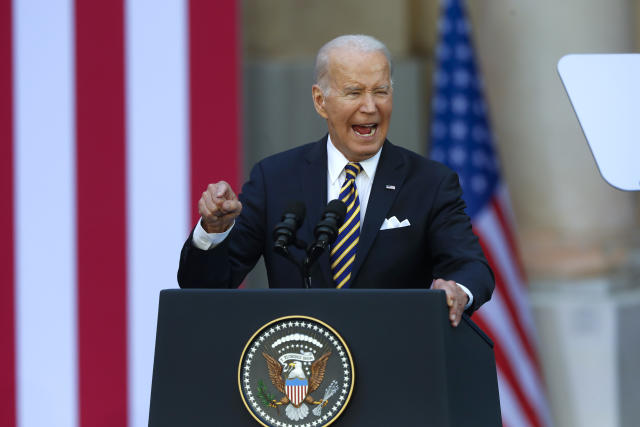
“Our unity will not falter," Biden declared. "I promise you.”
“America never recognized the Soviet occupation of the Baltic," he said to an outpouring of cheers from a crowd of thousands in a courtyard at Vilnius University draped with American and Lithuanian flags. "Never, never.” More spectators gathered in an overflow area, where a big screen was set up.
Biden spent two days in Vilnius for the annual NATO summit, where members of the western military alliance pledged more support for Ukraine but stopped short of extending an invitation for the besieged country to join the alliance. After meeting with Ukrainian President Volodymyr Zelenskyy, who entered the summit demanding a clear path for his country toward joining the alliance, something that was initially promised back in 2008, Biden said that other security guarantees agreed to at the summit will be even more significant.
“One thing Zelenskyy understands now is that whether or not he’s in NATO now, it’s not relevant as long as he has commitments," Biden said, comparing the situation to how the U.S. ensures Israel's security edge over its neighbors.
The president pointed to the U.S. and allied response to Moscow's invasion as a model for how to respond to other global challenges, from climate change to the rise of China, saying nations' positions are stronger when they “build the broadest and deepest coalition.”
“Our commitment to Ukraine will not weaken,” he said. “We will stand for freedom today, tomorrow and for as long as it takes.”
The president was headed next to Finland, the newest member of NATO, for a meeting of Nordic leaders. During his speech, Biden hailed an agreement to advance Sweden's membership in NATO after Turkish President Recep Tayyip Erdogan agreed to drop his objections.
"President Erdogan kept his word," Biden said, clearing a path for the alliance to have 32 members.
The U.S. president's enthusiasm for expanding NATO has not extended to Ukraine. He's expressed concerns about the country's readiness to join the alliance, as well as fears that the West could be drawn into a wider conflict with Russia.
The competing priorities in the midst of Europe’s bloodiest war in generations created an undercurrent of friction even as Biden and Zelenskyy projected a united front when they met earlier Wednesday. Their public encounter had the vibe of two leaders clearing the air, and each conspicuously heaped praise on his counterpart.
Biden lauded Zelenskyy and Ukrainians for their courage by saying it's “been a model for the whole world to see.” Zelenskyy thanked Biden and the American people for billions of dollars in military assistance, saying that “you spend this money for our lives.”
Wearing a blue-and-yellow-striped tie in the colors of the Ukrainian flag, Biden acknowledged that Zelenskyy has occasionally been unsatisfied by unfulfilled requests for weapons.
“The frustration, I can only imagine," Biden said. "I know that you're many times frustrated about whether things get to you quickly enough, what's getting to you and how we're getting it. But I promise you, the United States is doing everything we can to get you what you need.”
Biden also said the war had created a sense of unity about opposing international aggression.
“It’s bringing the world together," he said. "It’s a hell of a price to pay, but it’s bringing the world together.”
The meeting came after a few other encounters between Biden and Zelenskyy at the summit. They sat close to each other at the inaugural meeting of the NATO-Ukraine Council, a new forum that's intended to give Kyiv a greater voice within the alliance.
And they shared the stage as the Group of Seven, which includes the world's most powerful democratic countries, announced plans for long-term security assistance for Ukraine.
But Wednesday afternoon was the first opportunity for Biden and Zelenskyy to sit down privately with their advisers after their public comments.
And by then, Zelenskyy had softened his tone considerably. En route to Vilnius on Tuesday, he had blasted NATO's vague plans for Ukraine's eventual membership, tweeting, “It’s unprecedented and absurd when a time frame is set neither for the invitation nor for Ukraine’s membership.”
Jake Sullivan, Biden’s national security adviser, said everyone “needs to look squarely at the fact” that allowing Ukraine to join NATO at this point “means war with Russia.”
“That is an inescapable fact,” he told CNN.
Sullivan credited Biden with ensuring that NATO is “more unified and more determined and more decisive than at any point.”
“That’s President Biden’s legacy when it comes to NATO, and it’s one that he can be very proud of," he said.
In an interview with The Associated Press before Biden left on his trip, Senate Minority Leader Mitch McConnell said the president has been “heading in the right direction but not fast enough” when it comes to supporting Ukraine.
“The weapons transfers never seem to happen as soon as they’re announced,” said McConnell, a Kentucky Republican. Although Ukrainians are “extremely grateful for the help,” he said, the assistance "frequently doesn’t get there soon enough to be the most effective.”
Although McConnell has been a firm supporter of sending help to Ukraine, other Republicans have voiced skepticism, creating uncertainty about Biden's ability to make long-term financial commitments.
N.Korea says carried out new test of solid-fuel ICBM
North Korea said Thursday it had successfully tested its new intercontinental ballistic missile, state media reported, as Pyongyang vented its fury after threatening to down US spy planes it said had violated its airspace.- 'Provocative' US actions -
Wednesday's launch came after North Korea on Monday accused a US spy plane of violating its airspace and condemned Washington's plans to deploy a nuclear missile submarine near the Korean peninsula.

North Korea said Thursday it had successfully tested its new intercontinental ballistic missile, state media reported, as Pyongyang vented its fury after threatening to down US spy planes it said had violated its airspace.
The report from state-run KCNA news agency said the Hwasong-18 -- a new type of purportedly solid-fuel ballistic missile that has reportedly only been fired by the North once before, in April -- flew 1,001 kilometres at a maximum altitude of 6,648 km before splashing into the East Sea, also known as the Sea of Japan.
The flight time of around 70 minutes is also similar to some of North Korea's previous ICBM launches, experts said.
The launch, which KCNA said was guided by North Korean leader Kim Jong Un, was a "grand explosion" that shook "the whole planet", according to the report.
Kim also vowed that "a series of stronger military offensive" would be launched until the United States and South Korea change their policies towards the North, KCNA said.
The confirmation of the launch -- which the South Korean military had reported on Wednesday -- came as relations between the two Koreas are at one of their lowest points ever, with diplomacy stalled and Kim calling for increased weapons development, including tactical nukes.
In response, Seoul and Washington have ramped up security cooperation, vowing that Pyongyang would face a nuclear response and the "end" of its current government were it to ever use its nuclear weapons against the allies.
The launch "is a grave provocation that damages the peace and security of the Korean peninsula" and violates United Nations sanctions on Pyongyang, South Korea's military said, calling on North Korea to stop such actions.
The United Nations, United States and its allies, including France, also strongly condemned it.
"This launch is a brazen violation of multiple UN Security Council resolutions and needlessly raises tensions and risks destabilising the security situation in the region," US National Security Council spokesperson Adam Hodge said in a statement.
Pyongyang in February also launched a Hwasong-15, which flew a similar 989 kilometers.
- 'Provocative' US actions -
Wednesday's launch came after North Korea on Monday accused a US spy plane of violating its airspace and condemned Washington's plans to deploy a nuclear missile submarine near the Korean peninsula.
A spokesperson for the North Korean Ministry of National Defence said the United States had "intensified espionage activities beyond the wartime level", citing "provocative" spy plane flights over eight straight days this month.
"There is no guarantee that such shocking accident as downing of the US Air Force strategic reconnaissance plane will not happen in the East Sea of Korea," the spokesperson added.
Kim's powerful sister Kim Yo Jong said that a US spy aircraft had violated the country's eastern airspace twice on Monday, according to a separate statement.
Kim Yo Jong said North Korea would not respond directly to US reconnaissance activities outside of the country's exclusive economic zone, but warned it would take "decisive action" if its maritime military demarcation line was crossed.
The United States said in April that one of its nuclear-armed ballistic submarines would visit a South Korean port for the first time in decades, without specifying an exact date.
South Korean President Yoon Suk Yeol has ramped up defence cooperation with Washington in response, staging joint military exercises with advanced stealth jets and long-range heavy bombers.
Yoon is set to attend a NATO summit in Lithuania this week, seeking stronger cooperation over North Korea's growing threats.
bur-st/dw
Former US Army general says Wagner boss Yevgeny Prigozhin likely isn't dead. If he were, Putin wouldn't be keeping it a secret.
If Yevgeny Prigozhin were dead or jailed after Wagner's rebellion, it would make Vladimir Putin appear "stronger," a retired US Army general said.
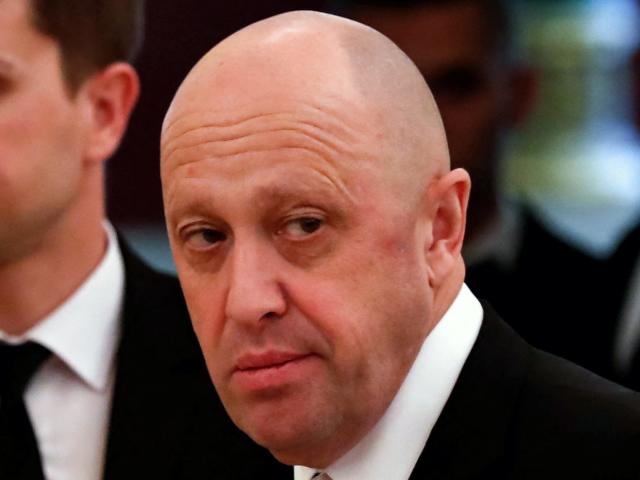
A former US Army general told Insider that Wagner boss Yevgeny Prigozhin likely is not dead or jailed.
If he were, Russian President Vladimir Putin wouldn't be keeping it a secret, the retired general said.
"What's the point of doing that and not saying that you've done that?" said Kevin Ryan.
"I don't see any evidence that he's been killed," retired US Army Brig. Gen. Kevin Ryan told Insider on Wednesday of Prigozhin, adding that he also does not suspect the financier and founder of the Russian paramilitary group to be currently locked up.
"What's the point of doing that and not saying that you've done that?" said Ryan, who served as the defense attaché to Russia for the US.
Ryan explained that in the aftermath of Wagner's brief armed rebellion, Putin "looks weak," and if Prigozhin was tossed in jail or dead, it would actually make Putin appear "stronger" to make that known.
"It would look like [Putin's] got it under control," Ryan said. "If he had him killed, he can do that. He's done it, of course, or he's allowed it to be attempted on other people."
"But the big names, the big faces," Ryan said, "Generally don't get killed because they made some sort of threat."
"It is true that we really don't know where Prigozhin is or what his situation is," Ryan said. "We are getting bits and pieces from different people, not from Putin directly and not from Prigozhin directly."
Kremlin spokesman Dmitry Peskov told reporters this week that Putin met face-to-face with Prigozhin and his commanders on June 29, five days after Wagner's rebellion. However, no photographs or videos of the meeting have been released.
It's possible Prigozhin could be headed for jail at some point, but what seems more certain for Prigozhin's future is that he won't have the power he previously had, Ryan told Insider.
"Certainly in his future is not having the power that he had before," Ryan said.
The retired US Army surmised that it is most likely the Kremlin is keeping Prigozhin, a billionaire businessman, around while it "dismantles" Prigozhin's vast empire.
"They need him to do it," Ryan said.
"It's easy to kind of fall into the Hollywood version of what might have gone down, but the reality is much more pragmatic here," Ryan said. "You kill somebody when that's what you have to do. Otherwise, there's ways to use them."
0 Likes
